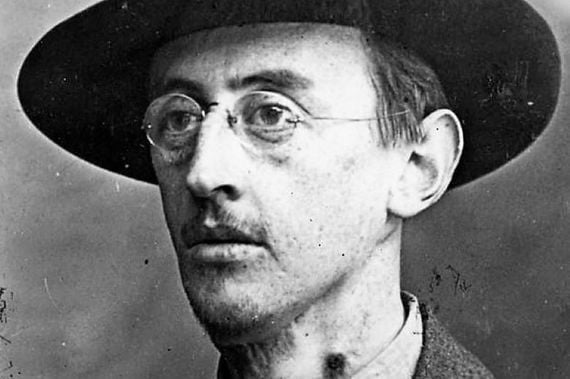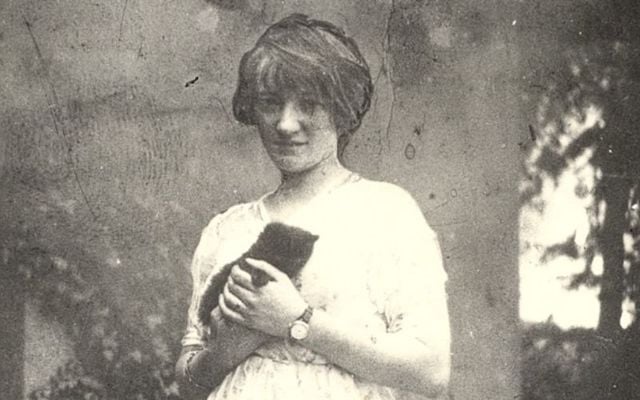”Grace,” the title of an enormously popular 1916 Easter Rising ballad sung at Celtic F.C. matches and recorded by Rod Stewart, may have a twist to the story that no one foresaw or knew about at the time.
Grace Gifford married Joseph Plunkett in his cell in Kilmainham Gaol on May 4, 1916, after he was identified as a leader of the Rising and just hours before his death.
Historian Lindsey Earner-Byrne, Professor of Irish Gender History at University College Cork, says there may have been more to the hurried marriage story than first appears.
She states that Gifford may have been pregnant when she married Plunkett. Evidence for this comes from Plunkett’s sister, Geraldine Plunkett, who was certain Grace had a miscarriage shortly after the 1916 Easter Rising.
A documentary examining the story called “Forgotten: Widows of the Irish Revolution” was broadcast on RTÉ in 2022 (watch below).

Joseph Mary Plunkett.
If she was pregnant as her sister alleged, it would have been a mortal scandal in the Ireland of its time. However, the theory goes, that getting married washed away any occasion of sin if she actually knew she was pregnant when she married him.
“If it was true (that she was pregnant), it would have had significant implications for Grace’s moral standing in the community,” Prof Earner-Byrne states in the documentary.
Read more
“It would have meant that the relationship was consummated before the wedding. It would also have meant that marriage had much greater significance for both of them. Unmarried women in those days were particularly vulnerable.”
Having a child outside marriage was a very serious matter in those times and would have resulted in social boycott.
However, a last-minute wedding in Kilmainham could have been a way for Grace to have avoided such a fate, Professor Earner-Byrne will say.
We will of course, never know the answer but we can rest assured the love story of Grace and Joseph will carry on down the ages, wherever Irish ballads are sung.
Watch the documentary “Forgotten: Widows of the Irish Revolution”:
* Originally published in 2022, updated in March 2025.




Comments